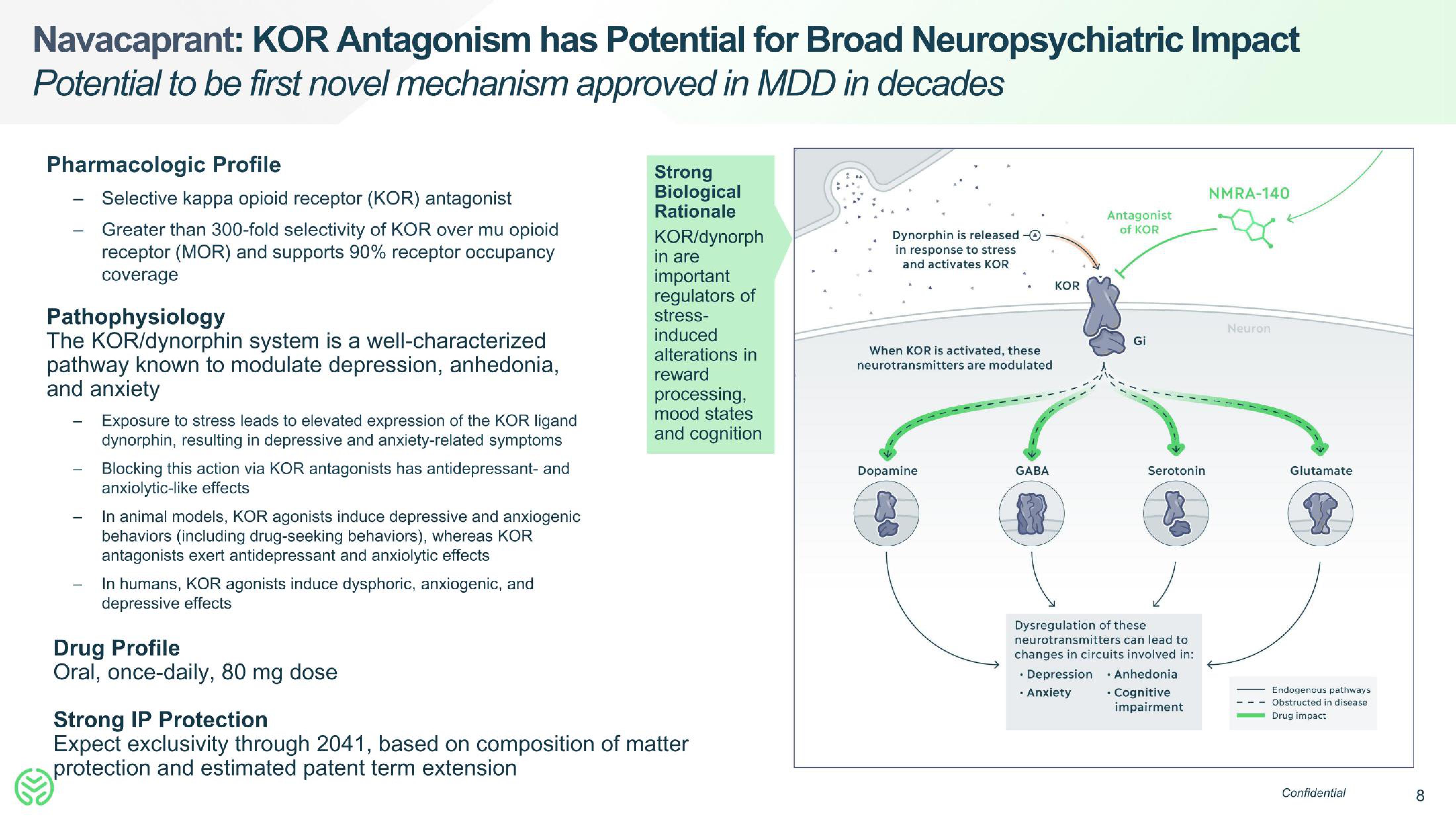Neumora Therapeutics IPO Presentation Deck
Navacaprant: KOR Antagonism has Potential for Broad Neuropsychiatric Impact
Potential to be first novel mechanism approved in MDD in decades
Pharmacologic Profile
Selective kappa opioid receptor (KOR) antagonist
Greater than 300-fold selectivity of KOR over mu opioid
receptor (MOR) and supports 90% receptor occupancy
coverage
Pathophysiology
The KOR/dynorphin system is a well-characterized
pathway known to modulate depression, anhedonia,
and anxiety
-
Exposure to stress leads to elevated expression of the KOR ligand
dynorphin, resulting in depressive and anxiety-related symptoms
Blocking this action via KOR antagonists has antidepressant- and
anxiolytic-like effects
In animal models, KOR agonists induce depressive and anxiogenic
behaviors (including drug-seeking behaviors), whereas KOR
antagonists exert antidepressant and anxiolytic effects
In humans, KOR agonists induce dysphoric, anxiogenic, and
depressive effects
Drug Profile
Oral, once-daily, 80 mg dose
Strong
Biological
Rationale
KOR/dynorph
in are
important
regulators of
stress-
induced
alterations in
reward
processing,
mood states
and cognition
Strong IP Protection
Expect exclusivity through 2041, based on composition of matter
protection and estimated patent term extension
Dynorphin is released -O
in response to stress
and activates KOR
When KOR is activated, these
neurotransmitters are modulated
Dopamine
GABA
KOR
Antagonist
of KOR
Gi
.
Serotonin
Dysregulation of these
neurotransmitters can lead to
changes in circuits involved in:
. Depression. Anhedonia
• Anxiety
Cognitive
impairment
NMRA-140
Neuron
Glutamate
Endogenous pathways
Obstructed in disease
Drug impact
Confidential
8View entire presentation